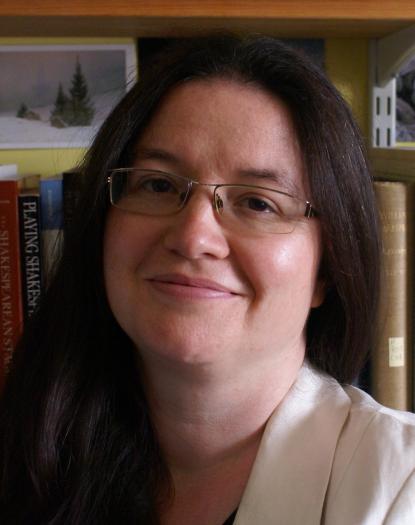You are not currently logged in. Please create an account or log in to view the full course.
Shakespeare and Catholicism
- About
- Transcript
- Cite
Shakespeare and Religion
In this course, Dr Beatrice Groves (University of Oxford) provides a broad introduction to the religious context of Shakespeare’s plays. In the first lecture, we think about the influence of Catholicism on Shakespeare, a confession that had suppressed in England in the 1570s and 80s, but which still formed part of the common cultural consciousness of Shakespeare’s audience. In the second lecture, we think about the influence of the Bible on Shakespeare, including both specific allusions within his plays (e.g. Othello’s reference to ‘the base Judaean’ in Othello, Hamlet’s reference to Jephthah in Hamlet) and particular turns of phrase from the Geneva Bible (e.g. ‘I summon up remembrance of things past’, Sonnet 30.2 ≈ ‘the remembrance of things past’, Wisdom of Solomon 11:10). In the third lecture, we think about the influence of mystery plays on Shakespeare, before turning into the fourth lecture to a specific allusion that deepens our understanding Measure for Measure: the Duke’s restoration of Claudio, who is presumed dead, and Jesus’ resurrection of Lazarus.
Shakespeare and Catholicism
In this lecture we think about the influence of Catholicism on Shakespeare and his plays, focusing in particular on: (i) the view among some scholars that Shakespeare himself was Catholic; (ii) the non-linear progress of the English Reformation across four Tudor monarchs: Henry VIII, Edward VI, Mary I and Elizabeth I; (iii) the echoes of Catholic practice in Hamlet, e.g. the echo of the Latin requiem mass in Horatio’s final words to Hamlet (‘And flights of angels sing thee to thy rest’, 5.1.345); (v) the extent to which these rituals are fragmented or otherwise disrupted, e.g. Hamlet Senior’s demand for blood sacrifice, the unsatisfactory funerals of both Polonius and Ophelia; (vi) the idea that Hamlet’s inability to act is a reflection of the unavailability of official forms of mourning in post-Reformation England; (vii) Shakespeare’s own beliefs, as well as those of his father, John Shakespeare, including the idea of church papistry; (viii) the popular fondness for Catholicism in the later 16th-century, including Helen Hackett’s idea of a ‘secularised Catholic revival’ in the 1590s and Stephen Greenblatt’s view that by the 1590s Catholicism had a nostalgic appeal to the old and a novelty value to the young; (ix) the idea that the Catholic elements in Shakespeare are part of the ‘furniture of the plays’ rather than ‘deconsecrated tropes’; (x) the reason that Shakespeare’s potential Catholicism has excited scholars; (xi) the extent to which Catholicism was assimilated into English culture after the Reformation, not destroyed; (xii) the importance of theatre in Catholic devotional practice, and the link between the (Catholic) mystery plays that continued to be performed in England until the 1570s and the plays of Shakespeare and his contemporaries twenty years later.
Cite this Lecture
APA style
Groves, B. (2024, December 11). Shakespeare and Religion - Shakespeare and Catholicism [Video]. MASSOLIT. https://massolit.io/courses/shakespeare-and-religion/shakespeare-and-catholicism
MLA style
Groves, B. "Shakespeare and Religion – Shakespeare and Catholicism." MASSOLIT, uploaded by MASSOLIT, 11 Dec 2024, https://massolit.io/courses/shakespeare-and-religion/shakespeare-and-catholicism

